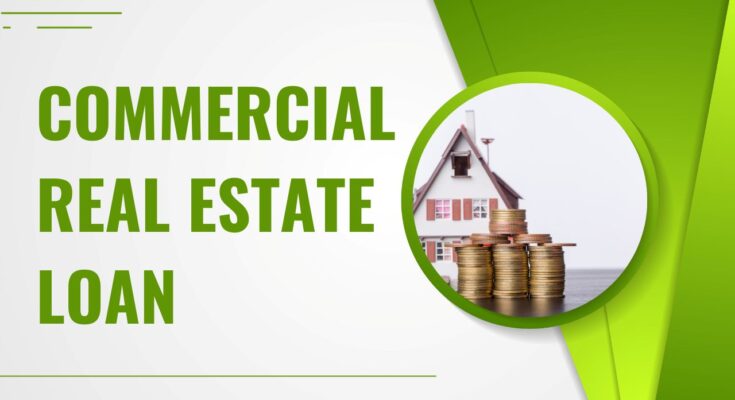Shopping for the best loan for your commercial real estate investments is important. When comparing loans, there are many factors you should consider, including interest rates, terms, and associated fees, as well as the amount of money that you need. This blog post will explain why shopping around for a real estate loan is important and the main points to remember when selecting a lender. อ
สล็อตเว็บตรงแตกง่าย พร้อมแล้วที่จะเป็นส่วนหนึ่ง และเป็นศูนย์กลางของการลงทุนไม่ผ่านเอเย่นต์ และยังคงเป็นทางเลือก ของการเงินที่เยี่ยมแตกง่าย แตกจริง และเป็นอีกหนึ่งประสิทธิภาพ ที่เหมาะสม กับความต้องการได้อย่างลงตัว และเป็นอีกหนึ่งบทบาทที่เหมาะที่ดีที่สุด ให้คุณได้เพลิดเพลินบันเทิงใจ กับการลงทุนในชนิดนี้ได้ง่าย และดี ฟรีเครดิต รับทุกวัน จัดเต็ม ได้เลย
Why not shop around for a commercial real estate loan?
It is worth shopping around for commercial real estate loans. It can help you save thousands of dollars on interest and fees over the loan’s life. You should also find a lender offering terms that suit your needs to get the best loan.
Commercial Real Estate Loan advisors can help you compare financing options and determine the best deal. To receive a free quote, fill out the form below. Keep reading to learn the most important things to remember before you sign a contract.
Determine what you want and need in a commercial realty loan.
Knowing what you want and need is important before you begin looking for loans. Do you want a short-term or long-term loan? What interest rates are you comfortable with? What maximum amount are you willing to take on a loan? Once you are clear about your needs, comparing loans from different lenders is possible.
Compare the terms and interest rates of different lenders.
The interest rate is one of the most important things you should compare when looking for commercial real estate loans. It is important to remember that the interest rate does not necessarily matter. Compare the terms of various loans. You need to compare their terms, including the loan’s length and any prepayment penalties. These factors will help you ensure you get the best loan deal.
Ask about the fees and associated costs.
When you take out a loan to finance your commercial real estate investment, there may be fees. These fees could include origination fees, appraisal costs, or other fees. To avoid any surprises down the line, be sure to inquire about all fees upfront. Be sure to inquire about additional costs, such as closing costs and insurance premiums.
Be prepared to provide detailed information about your company.
If you are ready to apply for a loan, include detailed information about your company, such as financial statements and tax returns. It will help lenders better understand your company’s financial situation and allow them to decide if they are willing to lend you money.
Do not hesitate to negotiate with your lender.
Feel free to negotiate with your lender. Be bold and ask for a better deal if the terms or interest rate aren’t in your favor. Remember that lenders can’t read your mind. It is up to you to negotiate the best loan deal for you.
Conclusion
It is crucial to shop around for commercial real estate loans. Allows you to compare rates and find the right loan for your needs. When comparing loans, there are many factors to consider, including interest rates and repayment terms. You can make sure you get the best loan possible for your next commercial realty investment by comparing your options. It is also a good idea to negotiate with lenders as this could lead to better terms.
Commercial Real Estate FAQs
What is commercial finance?
Individuals or businesses can finance a property. It allows them to purchase residential and commercial realty without paying cash upfront. Non-residential real property financing is usually obtained from a bank or insurance company to fund a commercial realty venture’s development, acquisition, and operation. Secured by commercial financing loans is primarily real estate and any related assets of the debtor. Other than real estate, fixtures, equipment, bank accounts and trade account, receivables, and inventory, general intangibles and supplies can serve as collateral for commercial finance loans. The documents used to document and secure the loan include loan agreements, promissory notes, mortgages or trust deeds, assignments of rents/leases, financing statements, and environmental indemnity agreements.
Exchanges under Code Section 1031
An exchange is when a taxpayer sells property held for investment or use in a trade or business and then uses the funds to purchase the replacement property. Code Section 1031 governs a 1031 exchange and many IRS Regulations and Rulings.
Section 1031 states that no gain or loss is recognized when the property in trade, business, or investment for the property of the same kind. Code Sec. 202(c) of the Revenue Act of 1921. Since 1939, section 1031 has been part of the Internal Revenue Code. It is identical except for two modifications in the past 75 years.
On the face of Section 1031, it allows only direct exchanges between taxpayers. In 1979, Starker (v. U.S.). Allowed taxpayers to create deferred exchanges where the taxpayer sold the Relinquished Property and purchased Replacement Property from a seller using Realized Proceeds. These deferred exchanges are sometimes called “Starker” or “Starker” trades. Although the Internal Revenue Service opposed deferred exchanges, the Tax Court was open to them. In 1991, the Internal Revenue Service adopted Regulations allowing them and governing their structure.
What notes can be for commercial financing?
A cognovit is a promissory notice in which the debtor authorizes the creditor to confess the debtor in court if the debtor defaults or breaches. The court can then immediately issue a judgment against him. Authorize the entry of an adverse judgment against the debtor if the debtor defaults on any loan obligations or fails to pay them. While the Supreme Court has ruled cognovit notes not illegal, many states have banned or restricted their use in consumer transactions. Many states won’t enforce them in commercial transactions.
What’s the difference between a mortgage loan and a deed of trust?
A mortgage is a document that secures real property to pay a debt or other obligation. The document that creates a lien on real property is called a mortgage. It is recorded at the local office for deed records to give notice of the lien held by the creditor. The mortgagee or creditor, also known as a beneficiary in a deed or trust or mortgagee in a mortgage, is the person who owns the mortgage or any other debt. The borrower or debtor, also known as the mortgagor in a mortgage or the obligor in a deed of trust, is the person or entity that owes the mortgage or any other obligation and who owns the real estate, which is the subject.
In most cases, the law is in the state where the property is determined. A deed to trust that secures real property under a loan serves the same purpose as a mortgage, but there are some technical and substantive differences. The debtor and property owners sign the deed to a trustee who holds the property in trust for creditors. A mortgage leaves the title to the collateral in the debtor, while the mortgage creates an interest on the real property. The trustee can obtain the real property in some jurisdictions without needing a foreclosure or sale. Others treat the deed as a mortgage. The law that governs deeds of trusts in these cases is the same as for mortgages. When the debt is in full, the trustee must reconvey the property to the debtor under the deed of trust. The trustee stays the same after the creditor has transferred their interest. Instead, the note or any other evidence of debt to the new lender and the previous lender acquires the beneficial interest in the trust.
For general inquiries:
* Email: [email protected]
* Phone: +1 (571) 544-6600




